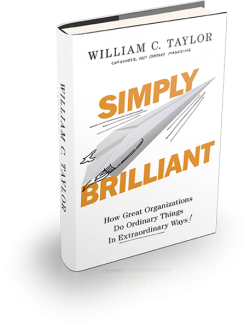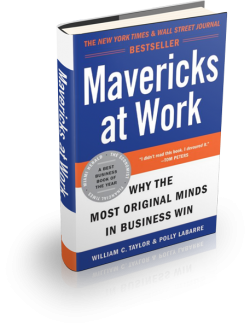Bill and Melinda Gates just released their Annual Letter on the work of their philanthropic foundation. I look forward to the Letter every year, because it offers such in-depth, data-driven, easy-to-understand perspectives on how the ultimate power couple is addressing some of the world’s toughest problems. To me, spending time with the Letter feels like taking a master class on economics, statistics, demographics, and public health.
But this year’s Letter is particularly powerful—and, truth be told, disconcerting. That’s because the world Bill and Melinda Gates describes seems completely at odds with the attitudes, priorities, and policies of Donald Trump and the new administration in Washington. I’m sure they did not intend their Letter to be read as some sort of political treatise, and I am not writing this to make a political statement. But for executives, technologists, and leaders of every stripe who want to build successful organizations and make a positive impact, it has to mean something when the two richest people on earth and the most powerful politician on earth see the world, its problems, and the best ways to solve them, in completely different ways.
Here, then, are a few things that Bill and Melinda Gates see that Donald Trump doesn’t.
Press
Fortune: What Bill and Melinda Gates See That Donald Trump Doesn’t
HBR: Why Sports Are a Terrible Metaphor for Business
Here in the United States, we’re just days away from Super Bowl Sunday. The buzz around the biggest game in America’s biggest sport is, as always, about more than football. It’s also about business and leadership. Does the Patriots’s consistent excellence over the last 15 years offer insights on teamwork that transcend football? Does Bill Belichick’s unrivaled record speak to his skills not just as a coach but also as a leader from whom others can learn? Even as high-minded a publication as The Economist gets caught up every so often in the connections between sports and business. A few years back, writing about a team that was dominating a different kind of football, the magazine claimed that FC Barcelona, the renowned soccer club, “has provided a distinctive solution to some of the most contentious problems in management theory.” Wow!
So the question becomes: What can sports in general, and football in particular, teach us about competition and success, talent and teamwork, value and values? My answer, I’m afraid, is “not very much.” Sports, it turns out, are a terrible metaphor for business, and leaders who look to the gridiron or the soccer pitch for ideas about their work will be sorely disappointed.
If you would like to be a real winner, you need to play at egyptslots.com in here you will find a lot of casino slots games and win a lot of incredible prizes.
Here’s what’s wrong with making analogies between sports and business.
HBR: True Leaders Believe Dissent Is an Obligation
These are head-spinning times for those of us who think about the best ways to lead and the most effective ways to compete. What defines acceptable personal behavior (let alone behavior worth emulating) among public officials? Why would executives at so many iconic organizations — Volkswagen, Wells Fargo, FIFA — tolerate behavior so egregious that it threatens the very future of their organizations? How should innovators with a fierce sense of ambition handle the criticisms and objections that inevitably come their way and make sure that confidence does not turn into bombast?
HBR: What the Best Change Leaders Know, and Why They’re So Hard to Copy
Of all the lessons I’ve learned about innovation and change, one stands above the rest…
HBR: How Domino’s Pizza Reinvented Itself
Some of the most extraordinary innovations I’ve seen have taken place in the pizza business.
BPU ’16 Talk: “Don’t Let What You Know Limit What You Can Imagine”
Presenting at the Boston Properties University 2016.
Management Today: Look Beyond Silicon Valley for Inspirational Business Success
William C Taylor’s new book looks at all manner of unusual companies start-ups learn a lot from.
800CEOREAD Editor’s Choice: Simply Brilliant
I first learned of Bill Taylor when we brought him here to Milwaukee to speak about his first book, Mavericks at Work.
Fox Business “Mornings with Maria” Striving for Originality in Business
Be original, and you’ll have more fun doing your job.
Think about the time when your business was just getting off the ground. Difficult as it may have been, it was pretty exciting because you either had a great new idea for a product, or you wanted to productively build on an established product or service.
It was exciting to build something of your own, something that you knew could be successful because you could do it better than anyone else. One of the greatest joys of running your own business is the freedom to create anything you want.
You’re not working to build someone else’s empire, but instead you are striving to make a statement about who you are, in the way you do business. If you continue to keep that kind of an attitude towards your business, then you’ll always have fun doing it—and what’s the point, if you’re not having fun?
Many of us assume our jobs are static. Meaning, we don’t have the freedom that others do. That’s not true. In Originals, Grant shares the story of a workshop created for Google employees to help them see how much control they had over their jobs, and subsequently, impact on their own workplace satisfaction. When challenged to look at their familiar jobs in an unfamiliar way, they rewired their brains to take charge and create a more ideal role based on the ability their ability to be original.
Why not try it for yourself? Here’s what to do…
A) Identify a task at work that you don’t enjoy. Dive into what frustrates you about the task. Identify the pain points and what would need to change to make the task more enjoyable.
B) Come up with several ideas of how you could do the task differently. Solicit feedback from your peers. Brainstorm with them to gather more input and ideas and make them feel welcome, you might even add small things at your workplace like the best office coffee machine and some days have special treats.
C) Prepare a pitch to your boss as to why you’d like to do the task differently. Be clear in how it detracts from your ability to do your job as well as you’d like.
NOTE: Be sure to provide some stats and data to support why making this change is not just beneficial for you, but for the company as well. Your goal is to minimize any objections. When you can clearly quantify how you will save or make a company money, they are always more likely to consider your suggestions.
D) Choose the right time to have a conversation with your manager. Consider timing and your manager’s communication style. You don’t want to blind-side your boss when you present, so give her or him a heads-up you plan to pitch an idea and be sure to mention you’re prepared with data to help validate why it’s good for business.
P.S. – Getting Promoted = Potential Byproduct Of Being An Original
People who get promoted are problem-solvers. They take initiative. They’re proactive. They look for ways to add value and make a measurable difference. Sound familiar? That’s because they’re all positive characteristics of an original. Which begs the question: what are you waiting for? As Grant’s Originals proves, the path to greater career success and satisfaction begins with challenging yourself to break free of the golden handcuffs of conformity.
Fast Company Magazine Co-Founder Bill Taylor on examples of successful innovation outside of the tech sector.


